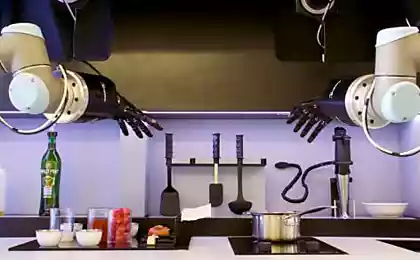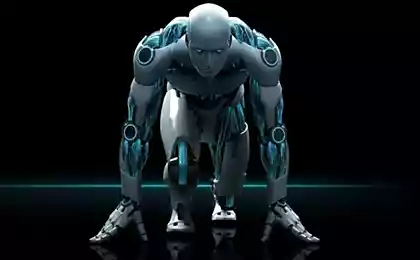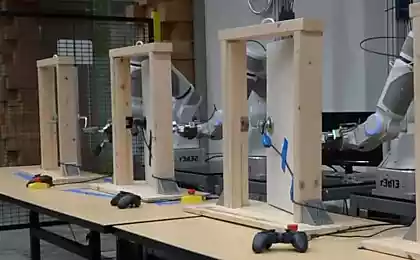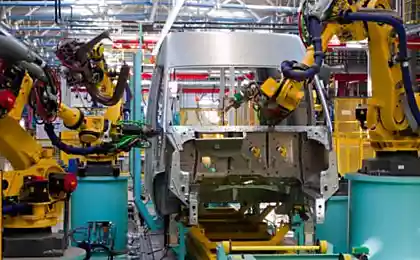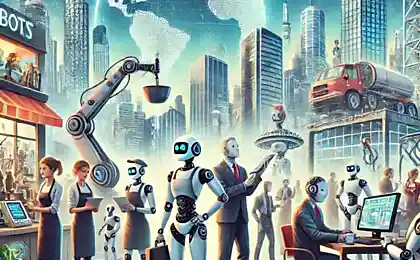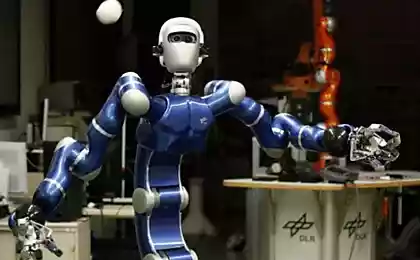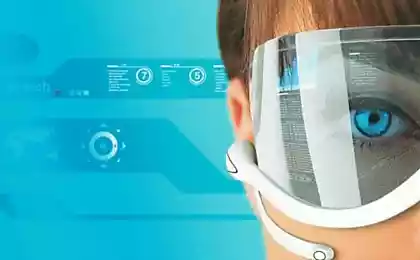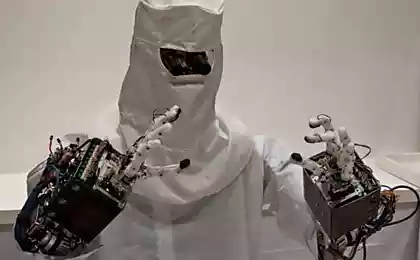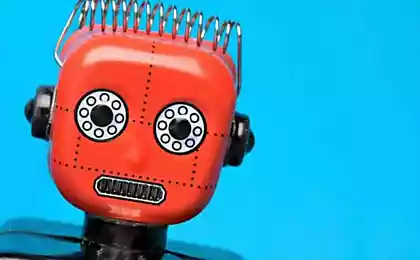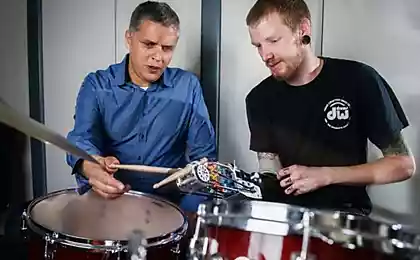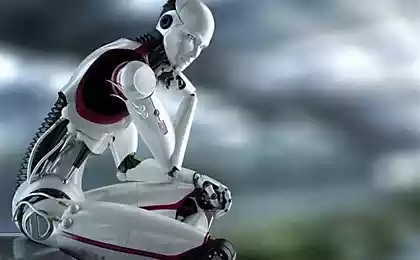543
Robots and your personal life. What is the danger
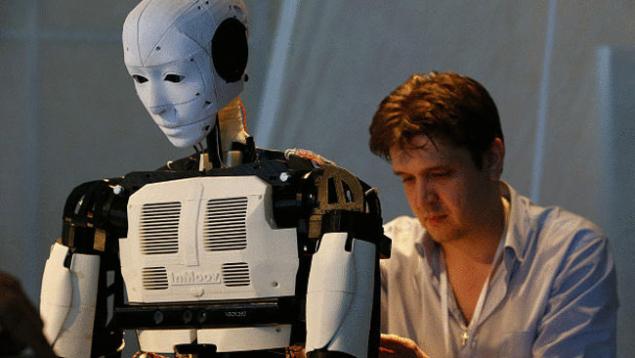
To delve into the robot, until he began to dig into us?
Robots will sooner or later enslave humanity? Nonsense. But there is another serious problem with robots, which we normally ignore.
Joss Wright is training the robot to piss people off. Wright, a scientist working in the field of computer science. Experiment with a humanoid robot named Nao is that this robot will be asking people on the street and deliberately invade their personal space. For example, when meeting a stranger Nao can use facial recognition software to get familiar about the new information on the Internet. Or it can be connected to the history of the movements of his mobile phone. Or figure out where he had lunch yesterday, and ask whether delicious was the soup.
The experiment is part of a project called Click"People and robots in public space", which aims to explore how people interact with robots, and what happens if the machine is queer knows more about us than we thought. Wright is one of many researchers who are interested in whether we can trust robots that will eventually become part of our lives. If Hollywood is to be believed, the greatest danger is an incredible power and intelligence of robots, and it threatens the very existence of mankind.
But scientists and researchers say that the future of robotics looks very different. If the robots will spread everywhere, they will be able to constantly monitor us and to keep the information about us. Therefore, one of the main dangers is the threat to our private life. Maybe it's time to start worrying?
Robots a decade working on the production. Some of them are responsible for the cleanness in our homes, while others may soon be looking after us as security guards or help take care of the elderly. Last year alone, Google has already been developing a car that does not need a driver, bought eight companies specializing in robotics.
However, despite advances in technology and artificial intelligence to the emergence of intelligent robots is still far.
When you grow up with a home robot, used to trust him
That can greatly expand their capabilities – so it's cloud technologies, which are increasingly popular on the Internet. For example, being online, robots can receive information or to ask for help without interrupting the movement around the world.
This is the next stage has already begun, the evolution of technology. "Computers and all sorts of sensor devices occupy more and more place in our lives, in our environment," notes Wright, working in the Oxford Internet Institute (Oxford University).
"Ultimately, the robots represent the growing presence of computers [in our lives] as the physical objects with which we interact, says Wright. – In the future, these interactions will be very varied, natural and universal".
Perhaps this is one of the reasons why some leading firms in the field of web technologies (such as Google) are readily included in the development of robotics. Some researchers and activists protecting privacy rights, are concerned that robots can act as your physical representatives of these companies, giving them unprecedented access to our lives.
For example, the robot may collect information about your home and monitor your actions while vacuuming. It can then sell information about your home and Hobbies companies that are interested in you as a target audience for your ads and products.
But the robots really differ from computers is the appearance. "If they look like human beings, people can start to trust them, putting themselves at risk," says Mireille Hildebrand, an expert on law and privacy in Internet of the University of Nijmegen in the Netherlands.
He's just like us. Well, almost the same...
People tend to view the robot as more than just another technology, another tool — even if he doesn't look human. For example, in Nauticast quoted исследовании2007 year, scientists from the Technological Institute of Georgia surveyed the owners of 30 disc-shaped robot vacuum cleaner and found that most gave their robot a name and appointed him to a female or male. Many considered him a family member like a pet.
That's why Wright and his colleagues want to see how people will react to the demonstrative robot invasion in their privacy. Nao usually do not violate personal boundaries, but it can be programmed like a robot detective. In this experiment, the Nao will not have to do anything special beyond what is already making today's computers and smartphones. But all of these devices are inanimate objects and such look.
- IT is a program from Russia passed a test of humanity
It is not known what the results are, but Wright is convinced that in any case, you should take steps to protect our privacy from the robots.
And yet the solution is not to stop sharing any information, he said. Some compromises are necessary, they are in the interests of the person. For example, the robot nurses the information collected will help to anticipate potential health issues from their ward to control his blood pressure and glucose levels.
According to Wright, we need to put information security at the stage of designing robots, not to patch holes in fact leak. In particular, he designs the systems and protocols that ensure the collection of solely the information that is necessary to perform the intended tasks.
Are we willing to let them into our lives?
Applications for smart phones and web email clients, by contrast, generally collect all the data, including the information about you that would like to have company, but that is not absolutely needed in order to play Candy Crush or write an email.
Wright stresses that in order for these solutions to work, we need the corresponding law enforcement practice. With this agrees Hildebrand. "I think this issue is very important legal basis and it will allow you to achieve real data protection," she says. In 1995 the European Union issued a Directive on the protection of individuals with regard to the processing of personal data and on the free movement of such data. In 2012 the European Commission proposed to revise these rules to strengthen online privacy. "If we don't do that — emphasizes Hildebrand, I am sure, we will face serious problems".
In the current network era every one of us can learn much more than ever. Robots add to the problem severity. After all, if it turns out that because of how they look, we feel for him more confidence, then the big question arises: how far are we willing to let them into our lives?
In the end, the eyes of the robot us can observe someone else.
source
Source: /users/117
Experts: the energy infrastructure of the planet is vulnerable to climate change
The relationship of cancer and the emotional sphere of the person
